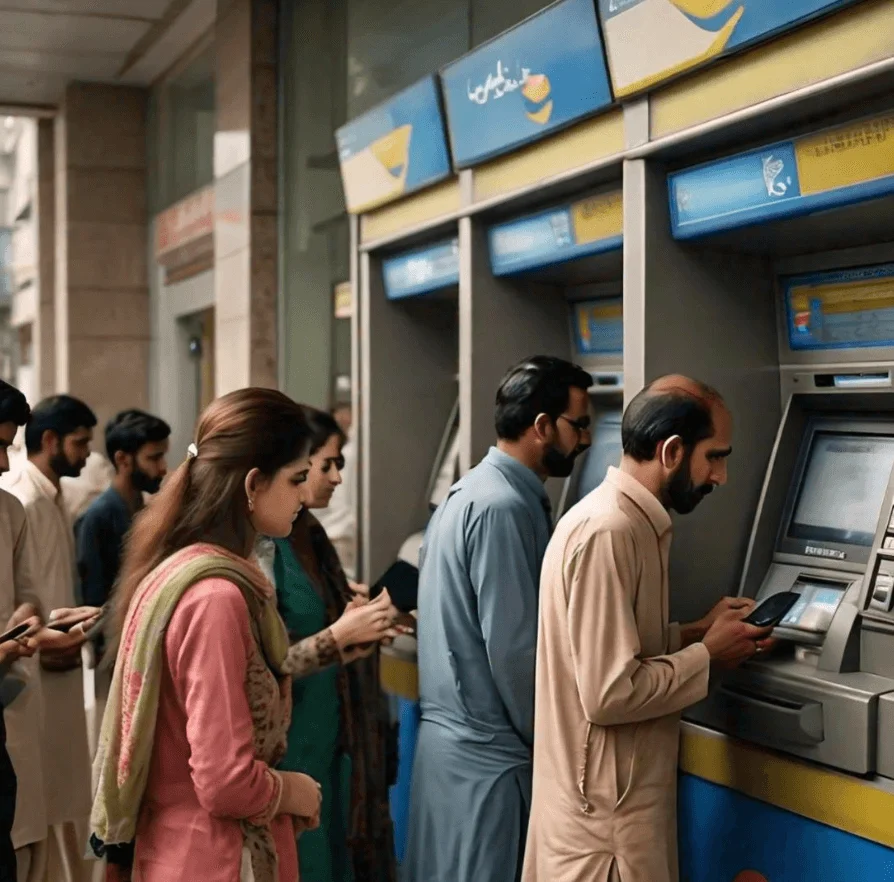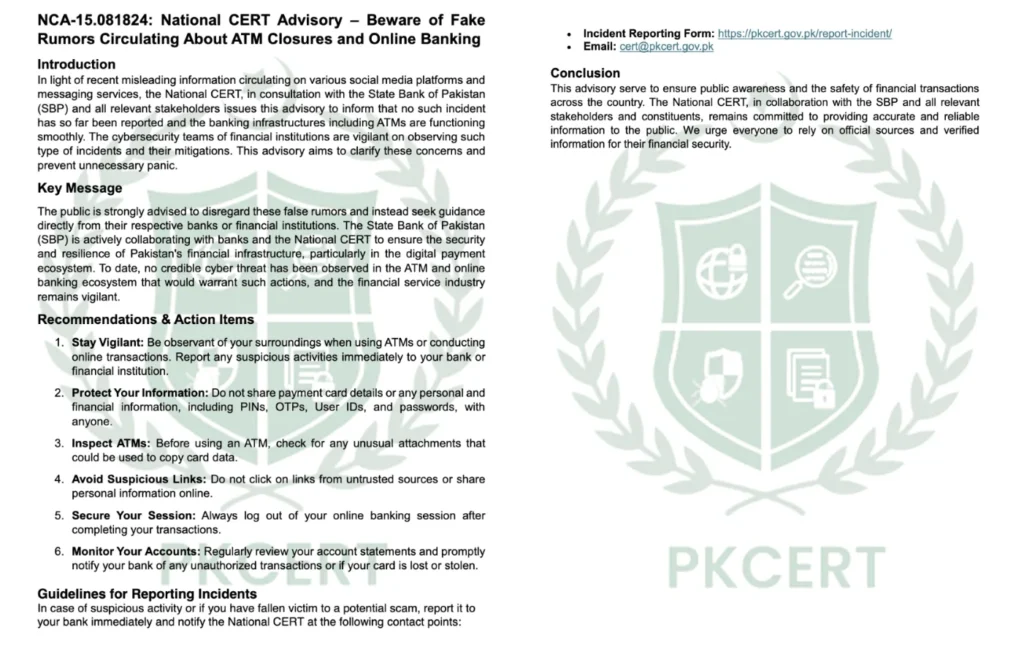
Recently, hackers have shut down ATMs and online banking applications throughout Pakistan, leading to news and rumors. The team published a series of posts detailing that ATMs would be out of service for several days and that users should refrain from online purchases because of a ransomware attack in Pakistan. Also, when I received the same message, it said that there was a ‘Dance of the Hillary’ video and email with ’’tasksche.exe”’ files are injurious to the device.
Nevertheless, there are rumors regarding this issue, but the National Computer Emergency Response Team (nCERT) has denies such rumors. Due to such advisory from nCERT, there is no proven information about the shutdown of banking structure and the cyber attack on ATM and Online banking system in Pakistan. Particularly important and frequently repeated was the message that all banking products are working including Pakistan ATMs and online banking applications, so the public should not panic.
Key Points from nCERT’s Advisory

- No Reported Disruptions: The national CERT clarified that there have been no confirmed cases of ATM closures or online banking interruptions in the country. All systems are functioning normally.
- Misinformation Alert: The advisory also urged people not to share fake and false information on the social media in particular. Recently, someone has scattered such rumors in the public, causing anxiety among the people regarding the safety of their financial investments.
- Safety Recommendations: Alongside, and as part of ‘debunking’ these myths, nCERT also felt the need to refresh the minds of the public on basic internet safety practices. The authorities urged the public to sign out from banking apps as soon as they are done with them and to make it a habit always to check through bank statements for any fraudulent activities.
- Confidentiality of Personal Information: The advisory called on the users to avoid sharing with others, any sensitive information such as the ATM card PINs, OTPs and passwords. Authorities told people not to disclose this information to others, even if the call or message came in the form of a text from a bank.
- Social Engineering and Virus Hoaxes: The advisory also addressed the viral message warning against opening a video titled “Dance of the Hillary” and emails containing “tasksche.exe” attachments. While people often circulate these types of messages as hoaxes, they remind users to exercise caution when interacting with unsolicited messages and files.
The Spread of the Viral Message
The viral message that sparked this situation is a common example of how misinformation can quickly gain traction online, especially when tied to sensitive issues like financial security. The message included exaggerated claims and invoked fear by warning of a dangerous ransomware attack, prompting many to share it without verifying its accuracy. Such rumors can cause so much unnecessary mayhem, a reason why people should take time before passing information on the social media.
Conclusion
The rumors circulating on social media in Pakistan in the last few days about closure of Pakistan ATMs and shut down of online banking applications in Pakistan because of a cyber attack are false, according to the National Computer Emergency Response Team (nCERT). The advisory added that all the banking services including, the ATMs and online banking applications are perfectly fine, therefore there is no reason for the people to panic.
To my mind, we need to be more attentive and, certainly, check the received information before sharing in the social networks. It also raises the awareness so far as concerns keeping safe, safe and secure on the web as well as the security of personal information.
Stop and think for a moment about what might be done to reduce the amount of fake news circulating in social media, particularly as regards such significant aspects of life as the financial situation? Also, what actions have you taken to safeguard your identification and money on cyberspace? Let’s hear your tips and best practices!

